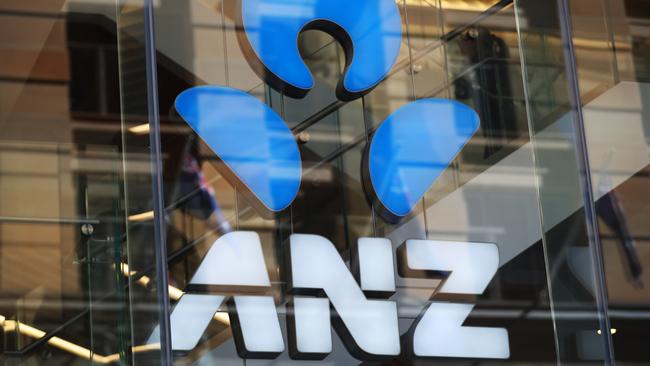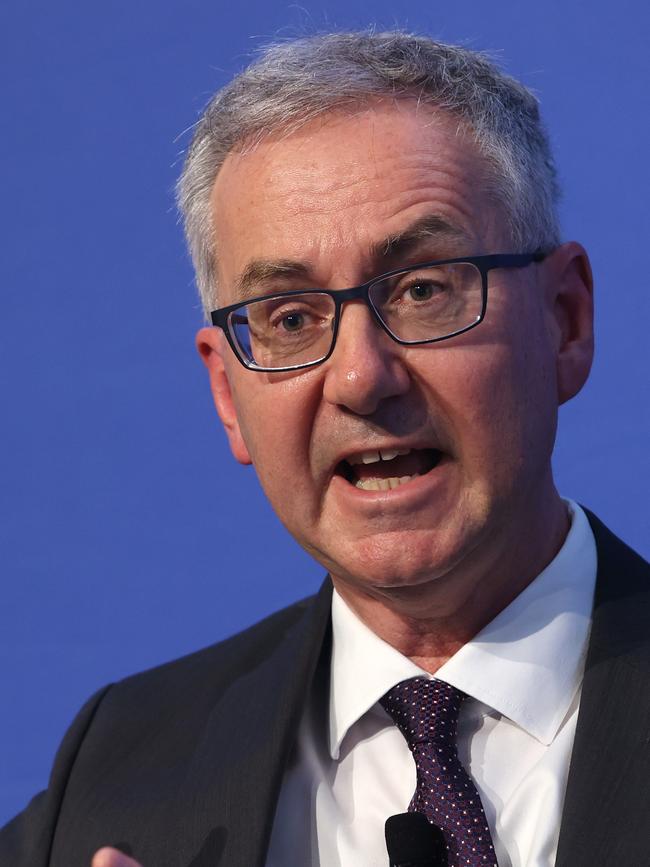APRA hands ANZ a $250m capital penalty after cultural failings, with non-financial risk now a priority for the bank
ANZ’s culture review has largely cleared the bank over issues in its markets business, warning they were isolated, but found many staff felt like the bank failed to police poor behaviour.

ANZ has been slapped with a $250m additional capital penalty, entering into a court-enforceable undertaking with the Australian Prudential Regulation Authority over failures in its markets business. The scandal will cost the bank tens of millions in additional investment to modernise how it manages risk.
It has struck a deal with the prudential regulator, which oversees the banking sector, concluding a culture review headed by Oliver Wyman that was released on Thursday.
ANZ will now be forced to carry an additional $1bn in capital including the bank’s existing $750m buffer, with APRA ordering the bank to take operational action and add new roles to mitigate non-financial risk.
The bank has agreed to appoint an independent reviewer to “to identify root causes and behavioural drivers of shortcomings in ANZ’s non-financial risk management practices and risk culture”.
ANZ will develop a remediation plan, with institutional bank boss Mark Whelan handed the turnaround job to oversee the implementation of 19 recommendations and 53 sub recommendations of the Oliver Wyman review.
ANZ will also set up a working group to support Mr Whelan, who oversaw the markets business, and who will report to the board on its progress. But no heads will roll, beyond several members of the markets business who have already exited the bank.

ANZ has also run the ruler over its 15 or so staff subject to the Financial Accountability Regime, concluding none had breached their obligations.
APRA chair John Lonsdale was not prepared to wait for “the possibility of a serious prudential problem crystallising at ANZ before taking action”, warning the regulator was growing impatient with the bank’s failures.
“APRA has seen how longstanding non-financial risk management weaknesses have manifested in material prudential issues at some of ANZ’s peer banks,” Mr Lonsdale said.
“We have observed some similar weaknesses at ANZ and require these to be addressed as a priority.”
ANZ chair Paul O’Sullivan said the bank was “disappointed that we have not met APRA’s expectations” about managing non-financial risk.
“We recognise we have more work to do to uplift our management of non-financial risk and to improve risk culture across the bank,” he said.
“The EU entered into today provides us with a clear road map for addressing APRA’s concerns. Both the board and management will bring a clear-eyed focus to completing this work, seeking to have the capital overlay removed as quickly as possible.”
In an analyst call on Thursday, ANZ said it was already addressing the issues raised by the regulator and Oliver Wyman.
Mr O’Sullivan said ANZ was now looking to “clear the air” with the regulators and “clear the decks” for incoming chief executive Nuno Matos.
Oliver Wyman’s review was commissioned in the wake of revelations the Australian Securities & Investments Commission was probing allegations of market misconduct in relation to alleged rate rigging in a 2023 $14bn government bond placement.
ANZ denies any wrongdoing, but has admitted the bank supplied incorrect data to government bond agency the Australian Office of Financial Management.
The Oliver Wyman review charts a number of issues in ANZ’s markets division, concluding the bank’s management had been absent from its Sydney dealing room, as well as several overseas outposts, and confined themselves to Melbourne.
The report also finds ANZ has failed to apply many of its risk controls in markets or penalise staff who breach them.

The consultant notes members of the markets team and its leaders lacked a “a high level of understanding and ownership of non-financial risk management”.
Oliver Wyman said there were five “root causes” behind the issues including leadership shortcomings, a tendency to view problems as isolated, and noting the business had a “culture that was not always strong enough to constrain inappropriate behaviour”.
That inappropriate behaviour includes allegations of bullying and alcohol and substance abuse, although the report finds this was not widespread.
Some former employees of the business say they were not contacted by Oliver Wyman, pointing to complaints they raised against current members of staff and leadership within the trading business which had not been investigated. One such complainant referred to alleged racism.
The report made no findings of racism, but did examine it in the context of things that violate its code of conduct.
The report does note multiple staff “reported that the individuals in question engaged in this inappropriate behaviour for periods of several months or even years without effective intervention”.
ANZ’s outgoing chief executive Shayne Elliott said responding to the non-financial risk concerns would cost tens of millions, added to the bank’s existing $100m risk uplift budget.
“The number is well over $100m a year … that number will go up,” he said.
Mr Elliott will mark his last day as ANZ chief executive on May 11, with Mr Matos to start on May 12.
ANZ’s current Singapore and South-East Asia head Mark Evans will be elevated to a new executive position of group head, non-financial risk program delivery, reporting into the bank’s chief executive.
Mr Evans is ANZ’s former chief compliance officer and head of strategic planning and execution in the institutional bank.
He will be responsible for heading up ANZ’s response to the APRA enforceable undertaking “in order to strengthen non-financial risk management”.
A new general manager operational risk position will be created, reporting into ANZ’s chief risk officer Kevin Corbally, with the bank poaching IAG’s Dan Wong for the job.
Mr Wong will be required to integrate operational risk into strategic decision-making processes across the bank.
Atlas Funds Management chief investment officer Hugh Dive said he was less concerned about ANZ’s risk spending and more focused on the delivery of its Suncorp Bank integration and bad debt performance.
“It sounds a lot to you and me, but $250m in the context of a bank is not great but it’s not really going to move the needle,” Mr Dive said.






